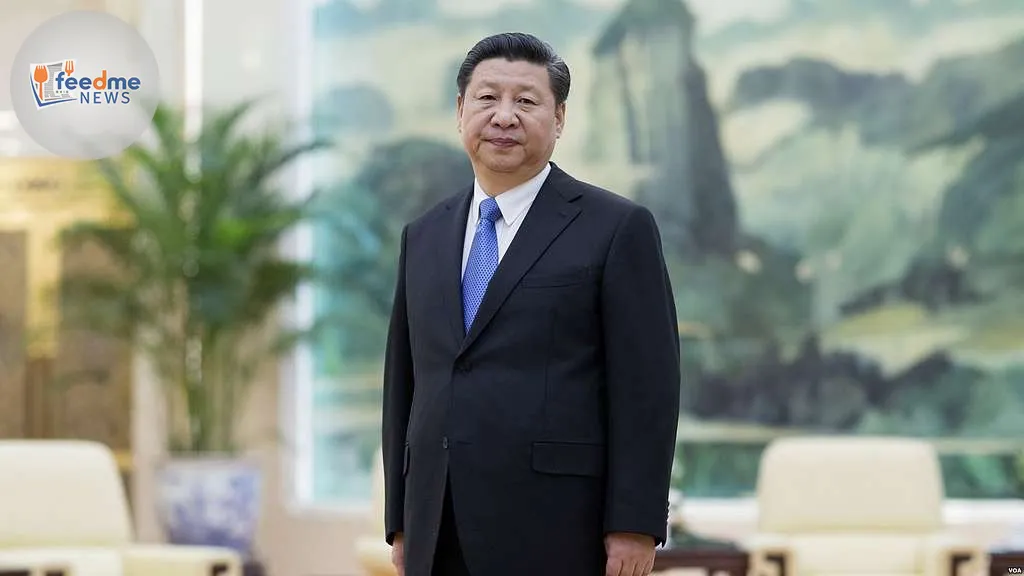In a significant diplomatic move, Chinese President Xi Jinping has expressed deep concerns over escalating tensions between Israel and Iran. As both nations stand at the brink of conflict, Xi’s comments highlight China’s growing role in international peacekeeping efforts. The Chinese leader’s statement comes as diplomatic circles worldwide intensify their calls for de-escalation.
The tensions between Israel and Iran have been simmering for years, but recent developments have brought them to a potential boiling point. Xi’s intervention underscores the urgent need for dialogue and resolution in the Middle East, a region historically fraught with geopolitical complexities.

Rising Tensions: A Brief Overview
The current strain stems from a series of incidents that have exacerbated the already volatile relationship between Israel and Iran. In recent months, there have been reports of military build-ups and accusations from both sides. Israel has accused Iran of advancing its nuclear programme, while Iran has criticised Israel for its military actions in the region.
This tense backdrop has raised alarms globally, with many nations fearing the potential for a broader conflict. Xi Jinping’s call for calm reflects China’s strategic interest in maintaining stability, not only for regional peace but also for global economic reasons, given the Middle East’s critical role in energy supply chains.
China’s Diplomatic Stance
China has traditionally maintained a balanced approach in its Middle Eastern diplomacy, fostering relationships with both Israel and Iran. Xi’s recent statement is consistent with China’s historical position of advocating for peaceful negotiations over military confrontations.
“China is deeply concerned about the ongoing tensions and urges all parties involved to exercise restraint and engage in constructive dialogue,” said a spokesperson for the Chinese Foreign Ministry. This diplomatic stance is part of a broader Chinese strategy to position itself as a mediator in international conflicts, aiming to foster stability through dialogue rather than force.
Global Reactions and Implications
Xi’s comments have resonated globally, drawing reactions from various international leaders and organisations. The United Nations has echoed calls for restraint, urging both Israel and Iran to avoid actions that could escalate the situation further. Additionally, the European Union has expressed support for any initiatives that could lead to peaceful negotiations.
The potential for conflict in the Middle East carries significant implications for global economies, particularly concerning oil prices and energy security. Any disruption in the region could lead to increased volatility in global markets, affecting everything from commodity prices to stock markets worldwide.
Expert Insights on the Situation
Experts in international relations have weighed in on the situation, emphasising the complexity of the Israel-Iran relationship. Dr. Emily Roberts, a Middle Eastern affairs analyst, noted, “The historical grievances and strategic interests involved make this a particularly challenging conflict to resolve. However, international pressure, particularly from influential nations like China, could play a pivotal role in steering the parties towards dialogue.”
The involvement of global powers in mediating the conflict underscores the interconnected nature of modern geopolitics. As nations like China lend their voices to calls for peace, the hope is that diplomatic efforts can prevent further escalation.
Looking Ahead: The Path to Peace
As tensions remain high, the international community watches closely for any signs of de-escalation. The path to peace will likely require sustained diplomatic efforts and concessions from both Israel and Iran. With China and other nations advocating for dialogue, there is cautious optimism that a peaceful resolution might be achieved.
Xi Jinping’s call for restraint serves as a reminder of the crucial role diplomacy plays in maintaining global stability. As the world grapples with various challenges, the hope is that diplomatic interventions can pave the way for a more peaceful and secure future.






